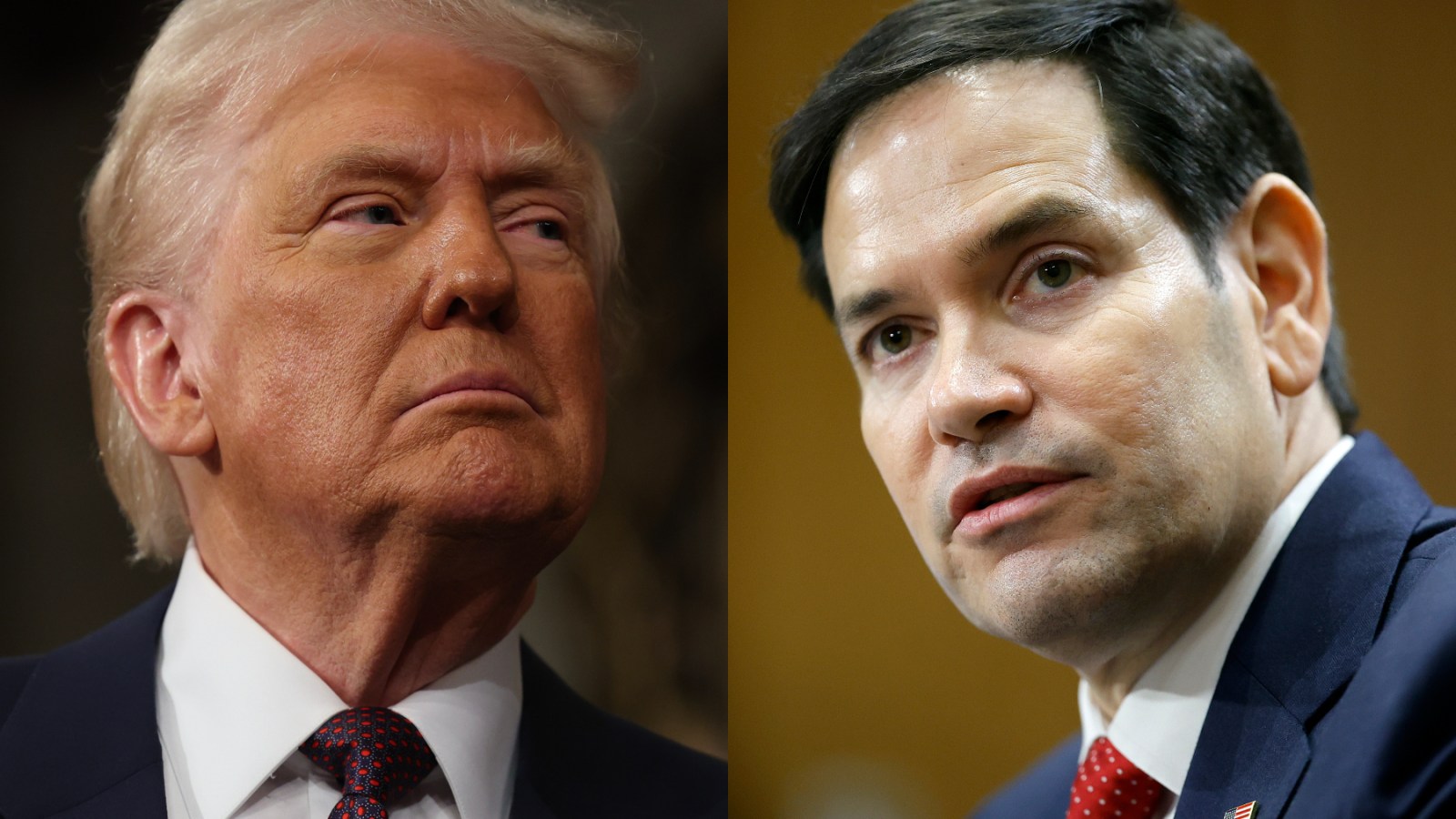
A judge ruled this week that Donald Trump’s administration violated his order barring officials from deporting people to third countries by attempting to send a group of Asian immigrants to South Sudan — and directed them to maintain custody of the immigrants at a U.S. military base.
On Friday night, Trump’s Justice Department and Secretary of State Marco Rubio unveiled a wild new argument as they demanded Judge Brian Murphy either reconsider or pause his orders so they can appeal them. The Trump officials argued that blocking the president’s attempt to deport immigrants to war-torn South Sudan will harm efforts to distribute humanitarian aid in the region.
“In South Sudan, the orders threaten to derail significant efforts to quietly rebuild a productive working relationship with the government in Juba,” Rubio wrote in a declaration filed alongside the Justice Department’s motion. He continued: “Cooperation between the U.S. and South Sudan is critical, both in terms of removals but also to advance the U.S. government’s humanitarian efforts in the country. Without South Sudan’s cooperation, moving humanitarian relief — food, medicine, etc. — into the region becomes more difficult. It is almost certain the court’s interjection will result in delayed or significantly reduced humanitarian efforts.”
It’s a rich argument, considering that the Trump administration has gutted the government’s humanitarian efforts, starting with the elimination of the U.S. Agency for International Development. The scraps of USAID, America’s foreign aid bureau, have been folded into Rubio’s State Department.
Last month, the nonprofit aid group Save the Children reported that it had closed seven free health facilities in South Sudan as a result of foreign aid cuts. The organization told The Washington Post that the Trump administration had terminated about $13 million in funding for South Sudan. The money had come from the State Department and U.S.-funded United Nations programs.
According to Save the Children, five children with cholera and three adults died last month as they attempted to travel three hours — in 104-degree weather and with “no access to clean water, shade, or medicines” — to the organization’s nearest health facility after the aid cuts forced closures.
Several projects relating to South Sudan were included in a recent list of canceled USAID contracts and programs, including a $40 million contract labeled, “USAID South Sudan Gender Aware Sustainable Water, Sanitation, and Hygiene Activity,” and a $30 million contract listed as “The Resilience through Agriculture in South Sudan.”
As part of its campaign to send immigrants to inhumane locations, the Trump administration earlier this week attempted to deport eight men, whom it accused of significant crimes, to South Sudan, one of the world’s most dangerous countries, with little notice. The immigrants are currently being held on a U.S. military base in Djibouti.
Murphy, a Massachusetts district judge, found the attempted deportations to South Sudan violated his previous order barring the Trump administration from deporting noncitizens to a country that is not their country of origin without due process, and without giving them a meaningful opportunity to demonstrate they fear being persecuted, tortured, or killed if they are sent there.
The Justice Department argued Friday that it had, in fact, complied with the judge’s order as it moved to carry out the deportations to South Sudan.
U.S. Immigration and Customs Enforcement (ICE) “provided notice ‘shortly before’ removing these criminal aliens and that notice was ‘meaningful’ and sufficient to comply with this court’s injunction as written,” the Justice Department argued. “These criminal aliens needed only state that they had a fear of removal to South Sudan to receive the other procedures required by the court’s April 18, 2025 injunction. The aliens did not do so.”
ICE official Garrett Ripa wrote in a declaration, “ICE generally provides an alien 24r hours, depending on exigency, following service of the Notice of Removal for the alien to raise a fear of torture if they are removed to the third country or express an intent to file” a claim under the Convention Against Torture.
The Trump administration previously tried to deport migrant detainees to Libya, another dangerous and war-torn country, before Murphy clarified such a move would violate his order.
Rubio wrote in his declaration that the court’s orders “have interfered with quiet diplomatic efforts and exacerbated internal political and security divisions in Libya.” He suggested the orders had played a role in “the most serious street fighting in Tripoli since 2022,” which “forced a postponement in the announcement of a significant commercial deal to expand activities of a U.S. energy company in Libya.”
He suggested the judge had caused headaches in dealing with officials in Djibouti, in the Horn of Africa, home to an essential military base for U.S. aircraft.
“The order interrupted the transit process and required that the aircraft and the eight individuals removed, including convicted felons, temporarily remain in Djibouti,” Rubio wrote. “That action required our government to re-engage the Djiboutians to explain that the mission they had approved had subsequently changed.”
He then claimed the judge’s demands have affected “counter-terrorism operations and both United States and multinational military movements.”